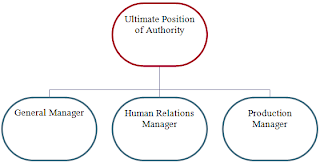Today's managers have access to an amazing array of resources which they can use to improve their skills. But what about those managers who were leading the way forward 100 years ago?
Managers in the early 1900s had very few external resources to draw upon to guide and develop their management practice. But thanks to early theorists like Henri Fayol (1841-1925), managers began to get the tools they needed to lead and manage more effectively. Fayol, and others like him, are responsible for building the foundations of modern management theory.
Fayol's "14 Principles" was one of the earliest theories of management to be created, and remains one of the most comprehensive. He's considered to be among the most influential contributors to the modern concept of management, even though people don't refer to "The 14 Principles" often today.
The theory falls under the Administrative Management school of thought (as opposed to the Scientific Management school, led by Fredrick Taylor).
DISCIPLINE: A successful organization requires the common effort of workers. Penalties should be applied judiciously to encourage this common effort.
UNITY OF COMMAND: Workers should receive orders from only one manager.
UNITY OF DIRECTION: The entire organization should be moving towards a common objective in a common direction.
SUBORDINATION OF INDIVIDUAL INTERESTS TO THE GENERAL INTERESTS: The interests of one person should not take priority over the interests of the organization as a whole.
REMUNERATION: Many variables, such as cost of living, supply of qualified personnel, general business conditions, and success of the business, should be considered in determining a worker’s rate of pay.
CENTRALIZATION: Fayol defined centralization as lowering the importance of the subordinate role. Decentralization is increasing the importance. The degree to which centralization or decentralization should be adopted depends on the specific organization in which the manager is working.
 SCALAR CHAIN: Managers in hierarchies are part of a chain like authority scale. Each manager, from the first line supervisor to the president, possess certain amounts of authority. The President possesses the most authority; the first line supervisor the least. Lower level managers should always keep upper level managers informed of their work activities. The existence of a scalar chain and adherence to it are necessary if the organization is to be successful.
SCALAR CHAIN: Managers in hierarchies are part of a chain like authority scale. Each manager, from the first line supervisor to the president, possess certain amounts of authority. The President possesses the most authority; the first line supervisor the least. Lower level managers should always keep upper level managers informed of their work activities. The existence of a scalar chain and adherence to it are necessary if the organization is to be successful.
EQUITY: All employees should be treated as equally as possible.
STABILITY OF TENURE OF PERSONNEL: Retaining productive employees should always be a high priority of management. Recruitment and Selection Costs, as well as increased product-reject rates are usually associated with hiring new workers.
ESPIRIT DE CORPS : Management should encourage harmony and general good feelings among employees.
So this was all about Fayol's 14 principles of management. Though these principles were formulated in the 19th century, even today managers fail to identify with them. though these principles might not suffice in their entirety in today's world, these form the basic building block for the next development in an organization.
I would be back with more organization management lessons. Till then, happy learning and happy blogging!
principles of management
ReplyDelete